Dimitri Zenghelis

Dimitri was previously a Principal Research Fellow, and prior to that Co-Head of Policy, at the Grantham Research Institute on Climate Change. In these roles he was responsible for producing, commissioning and communicating research on the economics of climate change policy. He is a Special Advisor to the Bennett Institute for Public Policy at the University of Cambridge and a member of the Productivity Institute. Previously, he headed the Stern Review Team at the Office of Climate Change, London, and was a senior economist on the Stern Review on the Economics of Climate Change, commissioned by the then Chancellor Gordon Brown. Before working on climate change, Dimitri was Head of Economic Forecasting at HM Treasury.
Background
Dimitri was a Senior Economic Advisor to Cisco from 2008-2013. From 2007 to 2008, he was Head of the Stern Review Team.
Prior to this, Dimitri was Senior Economist of the Stern Review Team at HM Treasury and Head of Economic Forecasting at HM Treasury.
Research interests
- The macroeconomic aspects of climate change;
- The design of policy regimes for tackling harmful climate change.
Research
Research - 2025
This paper examines the impacts on UK labour productivity of a low-carbon transition in the power, transport and heat sectors using a coupled macro-econometric and technology model (E3ME-FTT). Read more

Research - 2021
This paper discusses major action areas for China's 14th Five-Year Plan after COVID-19, especially focusing on three aspects: the energy transition, a new type of sustainable urban development, and investment priorities. Read more

Research - 2020
This paper (forthcoming in the Oxford Review of Economic Policy) assesses the economic and climate impact of taking a green route out of the COVID-19 crisis. The analysis is based on a survey 231 central bank officials, finance ministry officials, and other economic experts from G20 countries on the relative performance of 25 major fiscal recovery archetypes across four dimensions: speed of implementation, economic multiplier, climate impact potential, and overall desirability. Read more

Research - 2017
A diverse range of approaches, including contributions based on national interest and local benefits of climate action, is needed to meet the goals of the Paris Agreement. Now, research considers how equitable approaches may play a role. Read more

Research - 2016
Zenghelis, D., Chapter 12 in ‘Redefining Capitalism’ August 2016. Michael Jacobs (Editor) and Mariana Mazzucato (Editor), 2016, Wiley-Blackwell. ISBN: 978-1-119-12095-7.... Read more

The CCCEP Policy Innovation fund supported a project to explore the feasibility and perceived usefulness of an indicator of confidence... Read more

Research - 2014
Presentations given at a three-day course ‘The economics of change: achieving better growth and a better climate’- part of a... Read more

Macroeconomic conditions make this a relatively favorable time to kick-start investments necessary to transition to a resource-efficient economy Read more

Research - 2013
Presentation for the Cleantech City, Oct. 23, 2013, Conference – Link to presentation Read more

Chapter 12, The Green Book: New Directions for Liberals in Government, Summer 2013. Read more

Chapter 2 in ‘Building sustainability in an urbanizing world” Daniel Hoornweg and Mila Freire Eds. The World Bank. July 2013,... Read more

Research - 2012
The Electric City. Chapter on Green Cities. Stern, N. and Zenghelis, D., December 2012. External link to PDF Read more

Research - 2011
Chapter Author, UNCTAD “The Road to Rio+20: For a Development-led Green Economy,” forwarded by Jeff Sachs. – External link to... Read more

Abstract Cities have clearly played a major role in the creation of the problem of anthropogenic climate change and they... Read more

Research - 2009
Chapter author in book, published October 2009 – Link to publisher Read more

Contributor to Lazarowicz Review commissioned by the UK Prime Minister Gordon Brown, July 2009 – External link to publication Read more

Environmental Resource Economics, April 2009 Read more

This report reviews the economics of climate change in Southeast Asia, with a particular focus on Indonesia, Philippines, Singapore, Thailand, and Viet Nam. It confirms that the region is highly vulnerable to climate change, demonstrates that a wide range of adaptation measures are already being applied, and that it has great potential to contribute to the reduction of greenhouse gas emissions globally. Read more

Research - 2007
Accountability 2007 (Chapter author, p47) – External link to publication Read more

Policy
Policy - 2024
Drawing on the latest evidence from a range of disciplines, this report aims to assist decision-makers in HM Treasury (HMT) and beyond by offering constructive suggestions on how to help steer the UK economy through the net zero transition. Read more

A collection of essays authored by academics from universities across the UK that explores a range of topics often featured in public and policy discussion on climate change, with the aim of bringing together clear evidence setting out the reality of climate change in the UK while dispelling common myths. Read more

This report sets out the need for long-lasting institutional and policy frameworks that can induce investment in a broad range of assets in the UK to drive the transition to a sustainable, inclusive and resilient economy. Read more

Policy - 2022
With the macroeconomic environment shifting rapidly in the past year, posing serious challenges for policymakers, this paper aims to set out a stable and prudent course for macroeconomic policy. Read more

Policy - 2021
This paper explains why a sustained, strong and non-inflationary recovery from COVID-19 must be driven by private investment, and sets out priority actions for governments. Read more

This paper focuses on three action areas for China's 14th Five-Year Plan: the energy transition, a new type of sustainable urban development and investment priorities. Read more

Policy - 2020
This briefing paper sets out the key areas where strong economic policies and institutions will be needed to foster investment for the post-COVID-19 recovery, building on discussions in the Royal Economic Society's webinar series chaired by Professor Lord Stern. Read more
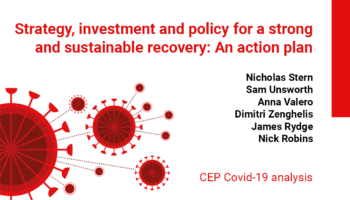
This is a response to the Bank of England's discussion paper, 'The 2021 biennial exploratory scenario on the financial risks from climate change'. The response has been prepared by authors from the Grantham Research Institute on Climate Change and the Environment at LSE, the Grantham Institute – Climate Change and the Environment at Imperial College London, and the University of Edinburgh Business School. Read more
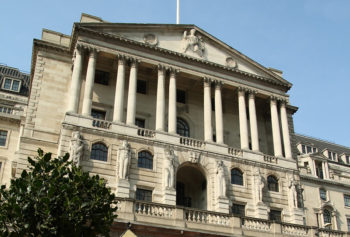
This working paper published by Oxford Smith School of Enterprise and the Environment outlines how the transition to net zero emissions could significantly contribute to the UK’s recovery from COVID-19. Read more
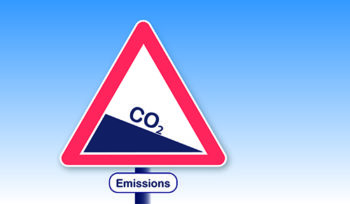
This briefing identifies key recovery policies that the UK government could introduce to both respond to the crisis of COVID-19, and support the country in meeting its commitment to reaching net-zero emissions by 2050. Read more

This paper examines the role of investment in physical, human, natural and social capital in the new phase of growth China is entering. It provides the beginnings of an analytical framework for key elements of this new growth story, examining how a focus on the four types of capital can help deliver prosperity through China’s 14th Five-Year Plan and Belt and Road Initiative. Read more

The first of two papers that offer an outline of strategies and policies for an innovative, sustainable and low-carbon approach to China’s development, this paper offers an approach that could spell out a new development strategy for the country as the 21st century progresses, to inform decision-making for China’s 14th Five-Year Plan. Read more

In advance of the Budget, this policy report highlights areas of the UK economy where the public sector could leverage private investment and in so doing contribute to achieving the strategic priorities of regionally balanced growth and decarbonisation. Read more
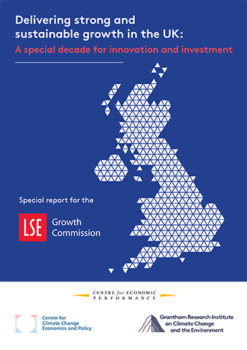
Policy - 2019
Initial report by the Bennett Institute for Public Policy at the University of Cambridge for the Wealth Economy Project on how to improve economic measurement in order to guide effective economic policymaking. Read more

Policy - 2018
This special report for the LSE Growth Commission shows why it is sensible for environmental sustainability to be at the heart of the UK’s growth strategy and how this can be achieved, setting out recommendations for government across the areas of innovation, infrastructure, skills and cities. Read more

This policy brief aims to assist negotiators, policy experts, and civil society in navigating the discussions on pre-2020 ambition towards... Read more

Policy - 2017
Note that an 8-page policy brief for decision-makers that draws on the full 36-page paper is available. Headline issue Both... Read more

This paper was submitted in response to the UK Government’s industrial strategy green paper: ‘Building our industrial strategy‘. Read more

Policy - 2016
Headline issue The new UK Government under Prime Minister Theresa May has committed to boosting UK productivity, to addressing the... Read more

Headline issue The new UK Government under Prime Minister Theresa May has committed to boosting UK productivity, to addressing the... Read more

Submission made to the Task Force on Climate-Related Financial Disclosures, which was set up in December 2015 by the Financial... Read more

In this talk, Dimitri Zenghelis presents the importance of the Paris accord in which it was agreed to limit the... Read more

Submission to inquiry on by the House of Commons Environmental Audit Committee. External link to publication Read more

This paper explores the potential impact of a uniform £20 per tonne carbon price on fuels and production costs across all 106 industries that comprise the UK economy. Read more
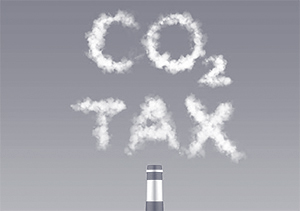
Policy - 2015
This policy paper was submitted to HM Treasury in response to its consultation on 'Reforming the business energy efficiency tax landscape'. Read more

The next UK Government after the General Election on 7 May should reform the UK’s overly-complex energy taxation and create new institutions to depoliticise infrastructure investment, particularly in the energy sector. These recommendations are among several new measures outlined in the Institute’s latest policy brief ‘Climate change priorities for the next UK government’. Read more

Policy - 2014
Outlines the main energy and climate change challenges in the UK over the next five-year term Read more

This is a submission by the ESRC Centre for Climate Change Economics and Policy and Grantham Research Institute on Climate... Read more

Headline issue Countries are now seeking to reach a new international agreement on climate change, to be signed in Paris... Read more

Shifting our fossil-fuelled civilisation to clean modes of production and consumption requires deep transformations in our energy and economic systems Read more

The ongoing review of the UK’s Fourth Carbon Budget is closely linked to the debate over the impact that domestic... Read more

Report outlines the strategic choices facing Copenhagen as it builds on its pioneering work as a global green economy leader. Read more

Paul Ekins, Will McDowall, and Dimitri Zenghelis, UCL, 2014. External link to report Read more

Macroeconomic conditions make this a relatively favorable time to kick-start investments necessary to transition to a resource-efficient economy. There is no lack of private money, just a perceived lack of opportunity. Resource costs are low and the potential to crowd out alternative investment and employment is greatly reduced. It is often argued that the short-term macroeconomic merit of an investment, in terms of what constitutes a good economic stimulus, can be judged against established criteria. These include tests on whether an investment is timely, temporary, and targeted. Although these are important, the evidence presented here suggests that a more important criterion for a sustainable economic impact is the ability to generate private sector confidence in profitable and enduring new markets. The world is likely to transition to a resource-efficient, low-carbon economy over this century and managing this transition has early pay-offs. Clear and credible green policies have the potential restore confidence and generate growth. Providing credible early incentives to invest in resource-efficiency could generate investment and growth in the long and the short run. Read more

With Philipp Rode Center for Urban Green Spaces Vol. 1 No. 4, January 2014 Read more

Policy - 2013
Briefing note The Climate Change Act received Royal Assent on 26 November 2008 and set an overarching target to reduce UK... Read more

LSE Cities, November 2012 – External link to report Read more

LSE, June 2013. – External link to publication Read more

Chapter 12 in The Green Book. Summer 2013 – Link to publisher Read more

European Union Committee – Evidence with Martin Wolf – May 2013 – External link to report Read more

Policy - 2012
All Party Parliamentary Climate Change Group Panel presentation, House of Commons, November 2012 – External link to presentation Read more

October 2012 – External link to submission Read more

Review of William Whitesell’s for the Journal of Environmental Policy & Planning. Full proof available. – External link to publisher Read more

In: Salzburg Trilogue Read more

With fiscal policy generally constrained by the need to restore confidence in the sustainability of public debt and the effectiveness... Read more

Policy - 2011
Contributor, Westminster, 2 November 2011 – External link to publication Read more

Cisco IBSG November 2011 – External link to report Read more

Research Institute on Climate Change and the Environment, London School of Economics with Simon Dietz and Alex Bowen. August 2011... Read more

Mattia Romani, Nicholas Stern and Dimitri Zenghelis Read more

Chapter Author, UNCTAD “The Road to Rio+20: For a Development-led Green Economy,” forwarded by Jeff Sachs. – External link to... Read more

In UNEP Green Economy Report with Philipp Rode, UNEP Green cities, Feb 2011 – External link to publisher Read more

Cisco PoV, January 2011 – External link to report Read more

A unique green opportunity has arisen for policy makers to create viable newmarkets, boost private investment and innovation, and stimulate... Read more

Policy - 2010
Published at COP 16 in Cancun. p22: December 2010 – External link to report Read more

‘Climate Change The New Economy’ published at COP 16 in Cancun. p22: December 2010 – External link to publication Read more

Inter-American Development Bank (IADB) (Contributor) International Finance and Investment for Climate Change, Volume 14, Jan-June 2010 – External link to... Read more

UNEP/Accountability (Contributor) May – External link to publication Read more

Sustainable Development Commission’s Publication, 2010 (Contributor) – External link to publication Read more

Policy - 2009
Aldersgate Group, October 2009 (Contributor) – External link to publication Read more

‘Meeting the Climate Challenge: Using Public Funds to Leverage Private Investment in Developing Countries’ is the output of a public/private... Read more

Alex Bowen, Samuel Fankhauser, Nicholas Stern and Dimitri Zenghelis Read more

Policy - 2008
US National Academies Board on Energy and Environmental Systems (BEES), October 2-3, 2008 Summary of workshops – External link to... Read more

Policy - 2007
Simon Dietz, Dennis Anderson, Nicholas Stern, Chris Taylor & Dimitri Zenghelis. World Economics 8.2, pp.229-258, 2007 – Link to publisher Read more

Simon Dietz, Chris Hope, Nicholas Stern & Dimitri Zenghelis. World Economics 8.1, pp.121-168, 2007 – Link to publisher Read more

Books
Books - 2016
Zenghelis, D., Chapter 12 in ‘Redefining Capitalism’ August 2016. Michael Jacobs (Editor) and Mariana Mazzucato (Editor), 2016, Wiley-Blackwell. ISBN: 978-1-119-12095-7.... Read more

Books - 2013
Chapter 12, The Green Book: New Directions for Liberals in Government, Summer 2013. Read more

Chapter 2 in ‘Building sustainability in an urbanizing world” Daniel Hoornweg and Mila Freire Eds. The World Bank. July 2013,... Read more

Books - 2012
The Electric City. Chapter on Green Cities. Stern, N. and Zenghelis, D., December 2012. External link to PDF Read more

Books - 2011
Chapter Author, UNCTAD “The Road to Rio+20: For a Development-led Green Economy,” forwarded by Jeff Sachs. – External link to... Read more

Abstract Cities have clearly played a major role in the creation of the problem of anthropogenic climate change and they... Read more

Books - 2009
Chapter author in book, published October 2009 – Link to publisher Read more

Contributor to Lazarowicz Review commissioned by the UK Prime Minister Gordon Brown, July 2009 – External link to publication Read more

This report reviews the economics of climate change in Southeast Asia, with a particular focus on Indonesia, Philippines, Singapore, Thailand, and Viet Nam. It confirms that the region is highly vulnerable to climate change, demonstrates that a wide range of adaptation measures are already being applied, and that it has great potential to contribute to the reduction of greenhouse gas emissions globally. Read more

Books - 2007
Accountability 2007 (Chapter author, p47) – External link to publication Read more

Events
Events - 2025
Events - 2020
Events - 2019
Events - 2016
Events - 2015
News
News - 2025
The transition to net zero is not just an environmental necessity, it is a major economic opportunity. Read more

Dimitri Zenghelis outlines what a smarter fiscal strategy for Britain would look like – one that eschews austerity and champions investment in intelligent, sustainable and resilient growth. Read more
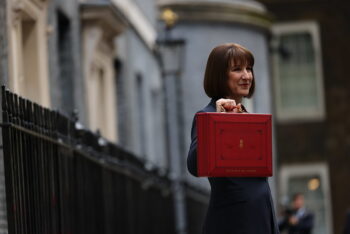
News - 2024
Resolving the UK’s saving problem is a prerequisite to boosting long-term growth. If her economic strategy is to stay afloat, Chancellor Rachel Reeves must confront the taboos from the manifesto and make those tough choices she readily espouses, writes Dimitri Zenghelis. Read more

Dimitri Zenghelis and Esin Serin assert that the UK’s next parliament risks perpetuating relative stagnation if it fails to embrace the challenge of creating a clean, green economy. Read more

The Spring Budget marks another missed opportunity to make progress on boosting living standards and increasing investment in a sustainable and resilient future for the UK, write Esin Serin, Anna Valero and Dimitri Zenghelis. Read more

This news article reports on a new study which suggests there has been a significant growth in green businesses and... Read more
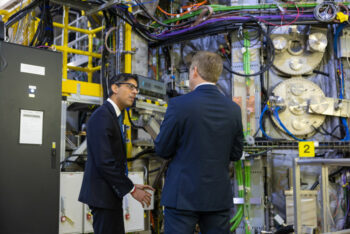
The UK urgently requires political leadership to access opportunities for stronger and more resilient growth while reducing macroeconomic volatility and restoring health to the public finances, write Anna Valero and Dimitri Zenghelis. Read more

This opinion piece reflects on the debate within the UK Labour Party over its green investment plans. The article references... Read more

This article discusses a new report by leading economists, including Lord Stern, which calls for the UK to make major... Read more

This article reports of criticism of the UK Prime Minister’s plans to expand oil and gas exploration in the North... Read more

News - 2023
Can governments afford the multi-trillion dollar clean transition required to meet climate targets? Dimitri Zenghelis sets out the safest way to restore health to the public finances. Read more

News - 2022
Dimitri Zenghelis explains why additional public borrowing has a role to play in financing the productivity-enhancing, sustainable and resilient investment of the future and hopes that the new Chancellor and Prime Minister draw the right lessons from recent events. Read more
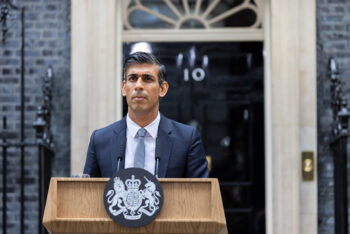
News - 2020
The UK has a unique opportunity to ‘rebuild to last’ after COVID-19 and design an inclusive, resilient and sustainable growth strategy that builds off the Chancellor’s Summer Economic Update, argue James Rydge and Dimitri Zenghelis. Read more

News - 2019
Dimitri Zenghelis explains why the British Chancellor’s assertion that a net-zero economy in the UK will cost more than £1 trillion by 2050 is simply wrong. Read more

Dimitri Zenghelis explains why Paul Romer’s theory of endogenous growth can be harnessed to direct and design a net-zero-carbon future while using William Nordhaus’s DICE and RICE models may already have proved truly damaging. Read more

Dimitri Zenghelis explores the fundamental concept of social capital, a key means of creating societal trust, and explains the necessity of investing in social capital for climate change and environmental policies to be successful Read more

Dimitri Zenghelis writes on how our expectations of the future shape the world and how we generate wealth, and determine whether and how we meet our climate and sustainability targets. Read more

The report, produced by 250 scientists and experts from over 70 countries and with the Bennett Institute’s Dimitri Zenghelis, who... Read more
News - 2017
Dimitri Zenghelis explains why economists should change their approach towards new technologies that combat climate change in this TEDxGoodenoughCollege event. Read more

News - 2016
Going Underground, RT (TV broadcast), 12 December Read more

Cities that are poorly planned risk leaving humanity with a hostile and potentially deadly climate say Dimitri Zenghelis, Co-Head of Climate Policy and Professor Lord Nicholas Stern in this Guardian commentary. Read more

The reservoir of free capital can help boost the UK’s productive capacity and secure a low-carbon future, writes Dimitri Zenghelis Read more

Newsweek, 12 September 2016 Read more

LSE Brexit Blog, 7 September 2016 Read more

The new UK Government under Prime Minister Theresa May has committed to boosting UK productivity and addressing the widening wealth... Read more

LSE Brexit Blog, 14 July Read more

The deal reached in Paris at the end of last year was a remarkable outcome. This is not because of... Read more

Business Green, 11 January Read more

News - 2015
World Economic Forum Agenda, 27 November 2015 Read more

Ahead of the COP21 UN climate summit, Nicholas Stern and Dimitri Zenghelis argue that the choices cities make today on transport and industry will determine whether the world can benefit from resource-efficient growth Read more

Llewellyn Consulting, 27 October 2014 Read more

Business Green, 25 August Read more

There is a danger that the current tinkering to subsidies and taxes affecting renewables in the UK will result in incoherence that will hinder efforts to reduce greenhouse gas emissions. Read more

Dimitri Zenghelis, economista jefe de la Global Commission on the Economy and Climate, advierte de la posición de ventaja de China en este campo Read more

Sciences et Avenir Read more

News - 2014
FT – Letters, 1 December 2014 Read more

New study from Grantham Institute says costs of tackling climate change will spiral unless concerted action is taken urgently Read more

Grantham Institute study says climate legislation has not harmed UK businesses and there is no case for weakening carbon targets Read more

Grantham Institute study says climate legislation has not harmed UK businesses Read more

A new study projects the economic damage caused by global warming will be significantly higher than previous models predict. Read more

The UN says we need to make a 'massive shift' to renewables to curb climate change. How can we encourage investors? Read more

“It is difficult to make predictions, especially about the future” – so goes the saying. The same applies to economic... Read more

“This comprehensive report shows that it will still be possible to achieve the target, agreed by countries at the United Nations climate change summit in Cancùn in 2010, of reducing greenhouse gas emissions to have a reasonable chance of avoiding global warming of more than 2 centigrade degrees. Read more

Business Spectator, 9 April 2014 Read more

An article published on 2 April by ‘The Conversation’ by Professor Richard Tol, under the headline ‘IPCC report shows Stern... Read more

Urban Nature, Vol. 1 No. 4. January 2014. Read more

News - 2013
Dimitri Zenghelis argues the case for economics to play a central role in climate policy Read more

BBC World Service Read more

This content is no longer available online. Read more

Journal of Environmental Investing Read more

Vol 4, No 1 (2013) – Sept 2013 Read more

Panellist with Michael Gorbacev, Ruud Lubbers and others. Green Cross International Conference, Geneva, Read more

Dimitri Zenghelis explains the complex limitations faced by economic models that can serve to slow down the transition to a sustainable economy Read more


The low carbon transition will bring both winners and losers, argues Dimitri Zenghelis, but that is no reason to delay... Read more

Business Green July 11 2013 Read more

Dimitri Zenghelis argues that innovation can tackle the looming resource crunch - it just needs intelligent policies if it is to be unlocked Read more

Business Green March 18, 2013 Read more

Now is the time to support resource-efficient investment because costs and barriers are low. Credible green policies could restore confidence and generate growth Read more

News - 2012
Carbon Trust Annual debate moderated by Camilla Cavendish from the Times Read more

The Clean Revolution This content is no longer available online. Read more

The Globalist, November 2012 Read more

Letter to the Chancellor in the Telegraph, November 2012 This content is no longer available online. Read more

Video recording of evidence provided by Dimitri Zenghelis to the UK Parliament’s the Environmental Audit Committee meeting on 4 December... Read more

BBC World Service interview with Lesley Curwen, October 2012 Read more


Renewable Energy Association Read more

Online article no longer available. LSE Blog Read more

Co-authored with Philipp Rode on green cities for the German Council on Foreign Relations (DGAP). Read more

Discussion held at Imperial College, July 2012 Read more

e!Sharp. June 2012. Read more

Presentation. Breakthrough Capitalism Forum. June 2012. Read more

11 June, 2012, Geneva This content is no longer available online. Read more

The New Statesman, June 2012 Read more

EuroNews, Comments Visions. Discussion. May 2012. Online article no longer available. Read more

The Growth Factory: 21st century industrial strategy for the UK. May 2012. Online article no longer available. Read more

Financial Times – registration is required. Read more

News - 2011
Lord Nicholas Stern, Philipp Rode (Executive Director of LSE cities) and Dimitri Zenghelis have authored a chapter in this book, entitled 'City Solutions to Global Problems'. Read more
Online article no longer available. Read more

Yesterday, following his speech on the green economy, I asked the Deputy Prime Minister, Nick Clegg, why the new Green... Read more

Review of Diane Coyle’s book ‘The Economics of Enough’ Nature, Climate Change. Read more

With the right backing from government, the Green Investment Bank has the potential to unlock huge opportunities for investment and... Read more

UNEP has published a new report: 'Towards a Green Economy: pathways to sustainable development and poverty eradication|'. Dimitri Zenghelis, a Senior Visiting Fellow at the Grantham Research Institute, was a contributing author of the chapter on cities. Read more

Review of Bjorn Lomborg’s book “Smart Solutions to Climate Change” Read more

News - 2010
The Guardian, 2 September 2010 Read more

At a time of renewed backlash against climate science, three recent books—Stephen H. Schneider’s Science as a Contact Sport, James... Read more

The Journal of Environmental Investing, Vol 1, No 1 (March 2010) Online article no longer available Read more

News - 2008
William D. Nordhaus, Dimitri Zenghelis and Leigh Sullivan Read more


